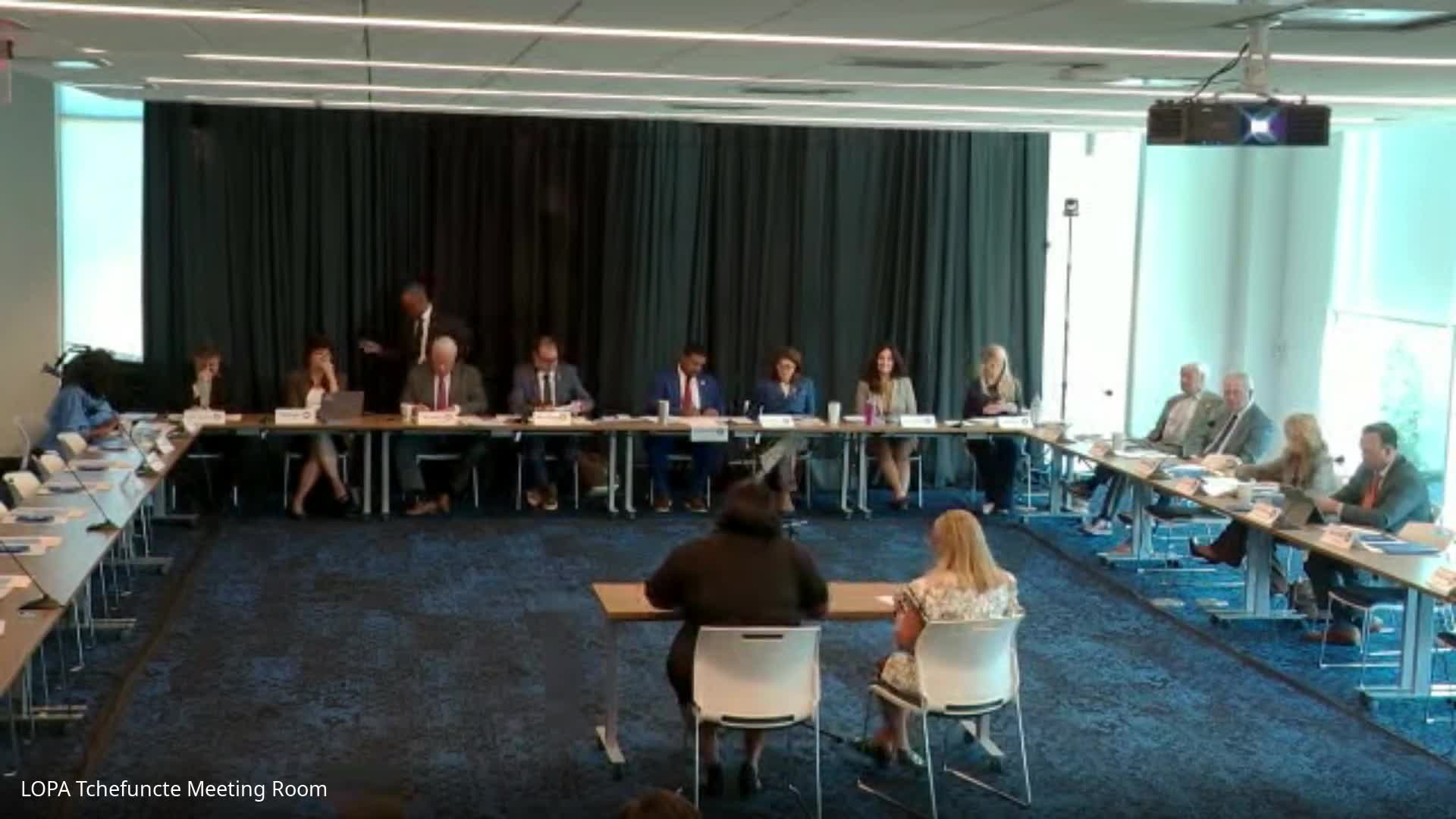Lawmakers press Louisiana Alliance of Children’s Advocacy Centers on 10% fee, reimbursement process and local allocations
Get AI-powered insights, summaries, and transcripts
Subscribe
Summary
At a joint Oct. 13 committee meeting in Covington, the Louisiana Alliance of Children's Advocacy Centers outlined service counts and state funding rules; legislators pressed the group over its 10% administrative retention from state appropriations in House Bill 1, reimbursement-based payments to local centers, and how supplemental member appropri-
Crystal Mitchell, executive director of the Louisiana Alliance of Children’s Advocacy Centers (LACAC), told a joint House and Senate Health and Welfare committee on Oct. 13 in Covington that the state chapter supports 14 local child advocacy centers statewide and helps them with training, accreditation and technical assistance.
Why it matters: Child advocacy centers provide forensic interviews, medical exams, victim advocacy and therapy to children who report abuse. Committee members pressed LACAC leaders on whether the state funding model and LACAC’s 10% administrative retention affect local centers’ ability to staff and operate services in rural areas.
Mitchell said the state chapter supports 14 local child advocacy centers and that the centers collectively served 7,563 children in 2024 and 5,714 children in the first half of 2025. "We of course are the state chapter organization that supports the 14 local child advocacy centers," Mitchell said, adding that LACAC provides training, accreditation support through the National Children’s Alliance and coordination with multidisciplinary partners.
Legislators asked detailed questions about LACAC’s finance model. Multiple lawmakers raised concerns about the practice of placing House Bill 1 appropriations on a reimbursement basis and about LACAC’s retention of 10% of state general fund appropriations for administration. Mitchell said LACAC retains 10% of the general-fund allocation to cover staff and administrative costs and that the remainder is distributed by formula to local centers based on child population, accreditation status and any satellite offices.
Local center directors said capacity is strained in rural areas. Kimberly Young, executive director of Hearts of Hope Children’s Advocacy Center, described staffing shortages and travel burdens: "We are currently down to only 2 interviewers, and I have 1 going out on maternity leave so you're fixing to see a backlog for us," Young said, describing multi-parish catchment areas and satellite offices that cannot be staffed full time because of funding constraints.
Lawmakers repeatedly emphasized two concerns: (1) that line-item appropriations intended for a particular local center should not be reallocated by a statewide association, and (2) that reimbursement-based disbursement can delay local centers’ access to funds they need to open or operate services. Several lawmakers said supplemental member appropriations should be treated as district-level allocations and not be counted into the statewide formula that influences future distributions.
Mitchell and other LACAC staff said the membership agreement and public policy documents specify how funds are handled, that unsolicited supplemental allocations directed to an individual center are not retained by the state chapter, and that LACAC maintains applications, monthly reimbursement reports and audits to document how funds are used. LACAC staff said the association had no audit findings and described internal controls including a grants and subcontracts manager and a finance director.
The committee discussed membership policy language and asked LACAC to provide updated documents; members also said they would review audit materials and follow up on reimbursement procedures with the treasurer’s office. No formal action or vote was taken during the presentation.
The committee paused to allow CAC directors and legislators to continue questions and to request additional budget and audit materials for later review.
